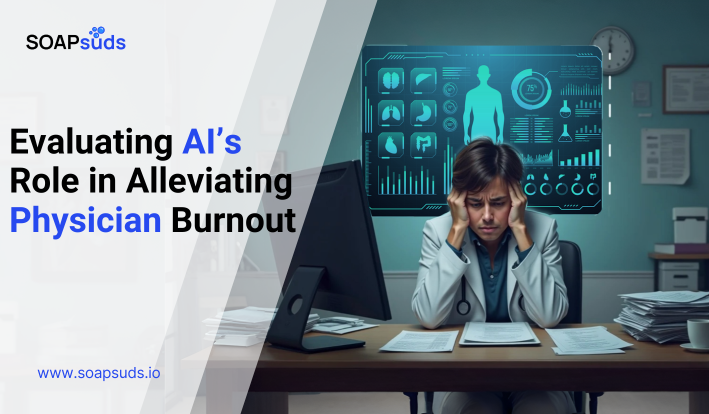Key Features and Benefits of AI Medical Report Generators (MRGs)
SOAPsuds team
Published: 3/17/2025
SOAPsuds team
Published: 3/17/2025

Curious about how Artificial Intelligence (AI) is reshaping the healthcare field? Picture a future where...

AI medical scribes are quickly changing how healthcare providers manage documentation, simplify daily tasks...

Home health executives are working under intense pressure: higher medical needs, fewer available staff, more

The healthcare sector is witnessing a shift in medical documentation with the advent of AI...

The healthcare sector is facing a growing burnout problem, leading many doctors to leave...

The dental field is on the verge of a major transformation, with AI-powered solutions...
Clinical Notes
SOAP notes
DAP notes
AI medical notes